McKinsey hosted former American Airlines Chairman and CEO Doug Parker for a podcast on “leadership lessons” and maybe it just tells you all you need to know about the pablum that comes out of an increasingly irrelevant McKinsey in the AI era but I found it interesting because of the creative histories Parker likes to tell about his legacy.
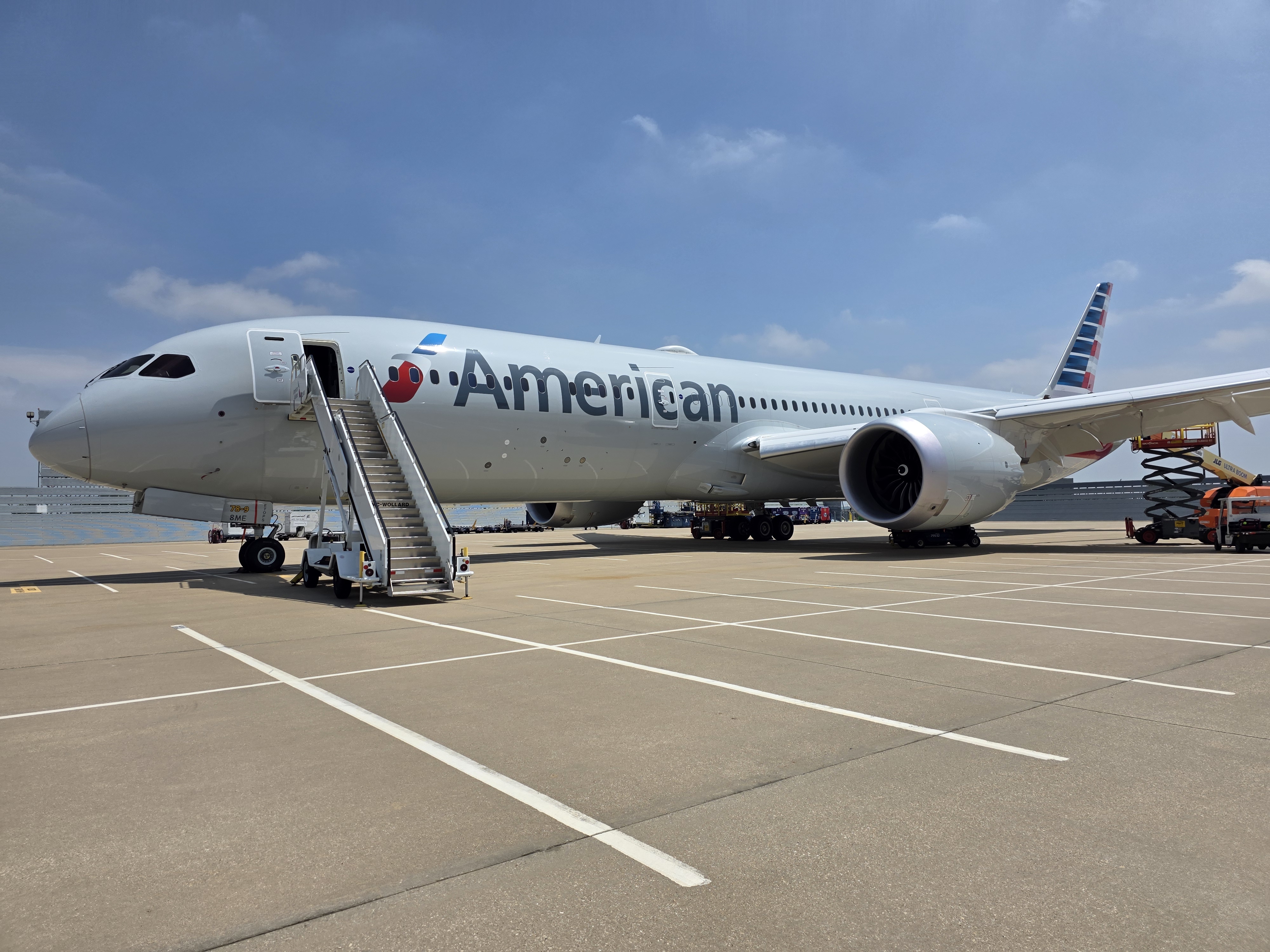
No one did more to drive consolidation in the U.S. airline industry, to get the airline industry hooked on government subsidy, or to destroy passenger experience. And he did this while furloughing more workers than anyone else in aviation history, and destroying more shareholder value than any other CEO than any airline in history.
He destroyed $30 billion in shareholder equity by levering up the balance sheet to fund $12.4 billion in stock buybacks, whle selling more than $150 million in company shares himself, driving up costs at the airline while employing a strategy of chasing Spirit and Frontier. The legacy of poor performance was greater than the bankruptcies of Pan Am and TWA comibed, and the airline was kicked out of the S&P 500.
Keep that in mind as we examine his claims in this interview,
- America West was on the verge of collapse when Parker first became CEO. He went to the government for a bailout and got it. Arguably, everything bad for society in the airline industry that follows flowed from that.
Parker notes that without that subsidy, he’d never have acquired US Airways (poisonous labor relationship, attempted to charge passengers for water) and never would have acquired American (eviscerated the inflight product and route network, retreated from New York and Chicago).

- He claims that he viewed his “responsibility as getting our employees into safe harbor. I swear I never once again thought about my career and my next job. The mission now was to take care of our employees.”
But he did not do a very good job taking care of employees, furloughing more during the pandemic than any other airline ever (when Delta and Southwest didn’t furlough anyone, and while keeping much of the taxpayer money meant for employees for themselves).
And he very much did ‘think about his career and next job’. His attempt to merge US Airways with United in 2008 was killed when then-United CEO Glenn Tilton made clear that Parker would not get to run the combined airline.
- Parker somehow thinks that US Airways had the better reservation system than American, but they went with American’s because they were larger and more employees knew how to use it. That’s some strange rewrite of history.
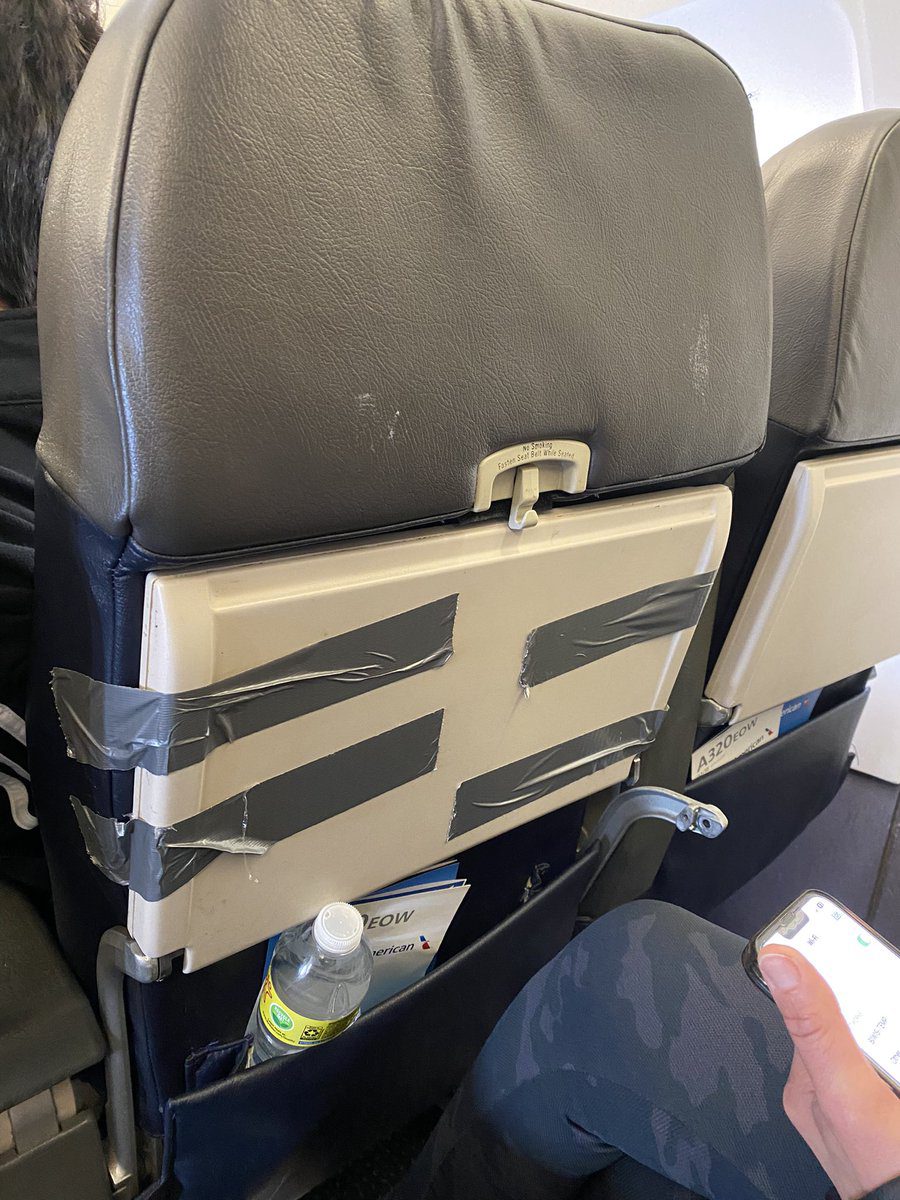
They kept the America West system when they took over US Airways and went months unable to sell partner tickets. On integration day the problem wasn’t employee training – the website and kiosks did not even work. I managed to fly because I paid $5 to a Skycap for my boarding pass, even though I did not have checked bags.
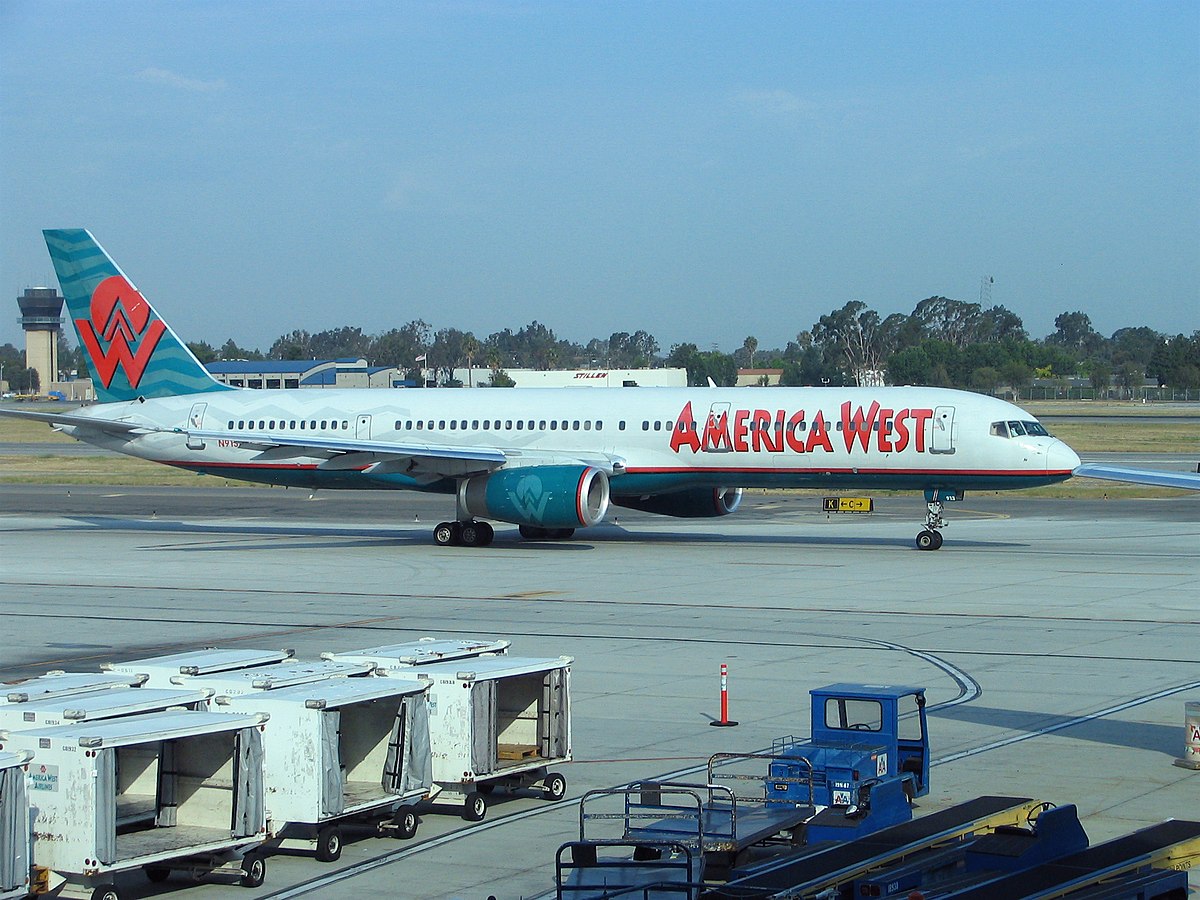
Credit: randomduck via Wikimedia CommonsThe US Airways system was great for frequent flyers, because it lacked capabilities and so much pricing was done manually. You used to be able to get agents to price South Asia awards as North Asia, first class awards as business class, and people (not me!) even sometimes ticketed awards without mileage deduction. This was not a strong platform.
These are largely archaic mainframe systems, and we thought at first that we should pick the better of the two systems. But we learned that if the better of the two belongs to the smaller airline, you now have twice as many employees who don’t know how to use that system. So we didn’t make that mistake the second time. Absent something really compelling that says otherwise, just use the American system and throw away the US Airways one—adopt and go.
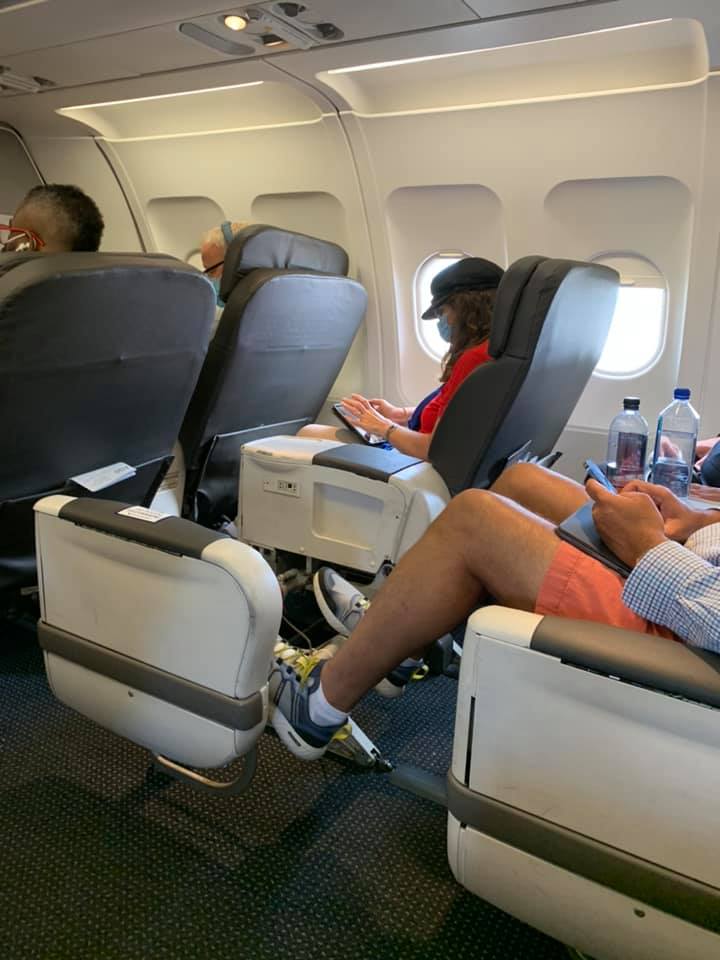
- Here’s how Parker describes his board relationship:
Their job is to ensure management acts in the best interest of shareholders, so our goals were always aligned. The board must be able to do its job. They add a lot of value when you let them do their job. What that meant to me was to communicate candidly all the time. I was never worried that something I was going to say was not absolutely in line with what the board wanted.
We could disagree about tactics, but the intent was always the same—we cared about creating long-term shareholder value. I think our board got to the point where they realized, “Okay, we don’t need to worry about checking their work. What we need to do is help them make the right decisions and mitigate risk.” So that’s how we worked.
I was lucky to have outstanding board members who understood the strategic situations that I described at the time and were therefore willing to let us take these pretty large risks at the time.
No one lost as much shareholder value in airline history as Parker. He built a board that never held him – or anyone else – accountable. That seems to have been the priority, because in Parker’s own telling the board lacked airline experience and that had “an impact on their deliberations and their ability to understand.”
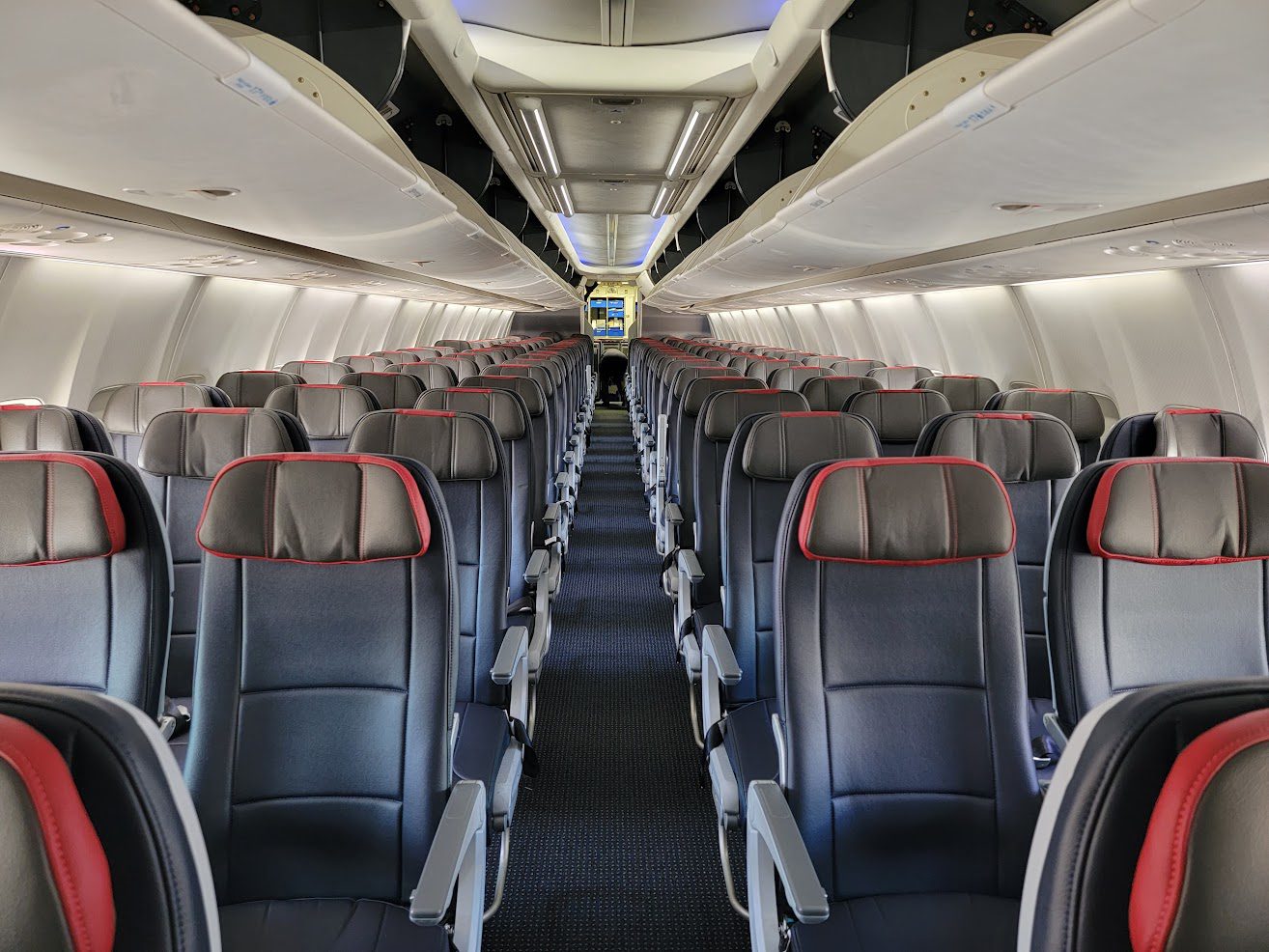
Do how we understand these old decisions today still matter? Parker is retired from American (though he’s a board member at Qantas – it matters for our friends Down Under!). So maybe just let him have his stories.
On the other hand, though, it matters what lessons we draw about what works and what doesn’t work in the airline industry. Parker overpaid for American Airlines in bankruptcy and cut short the bankruptcy process. That got him control of the airline, and he lucked out that fuel prices dropped so for awhile it looked like things might work out alright.
But reducing the quality of the product chased away customers. Scaling back the route network, because the product was uncompetitive, hurt them even more. Unable to compete against United and Delta on the coasts, their cobrand credit card – which had been driving more charge volume than any other airline’s – fell to third place.
In 2017, Parker declared that the airline would ‘never lose money again’. His apresentation laid out that the airline was on autopilot to earn $3 billion to $7 billion per year and would average $5 billion annually into the future.
There’s been 20% inflation since then – just staying even should mean $6 billion in ‘gimme’ profits. Yet the new CEO’s compensation package describes $2.5 billion in profit as the target and a home run to secure the greatest possible bonus as $5 billion.
CEO Doug Parker thought American could get away without installing power in legacy US Airways planes. He was shocked by the outcry when they cut American Airlines meals to US Airways levels back in 2014.
He greenlit their new ‘Oasis’ domestic product with less legroom, smaller lavatories, and ripped out seatback entertainment and didn’t even bother to try it until it was in the market for over half a year. It was such a disaster that they even went back to retrofit planes they’d already retrofit, because of problems they didn’t anticipate as a result of not building a mockup before deploying it. That’s not leadership to be emulating!
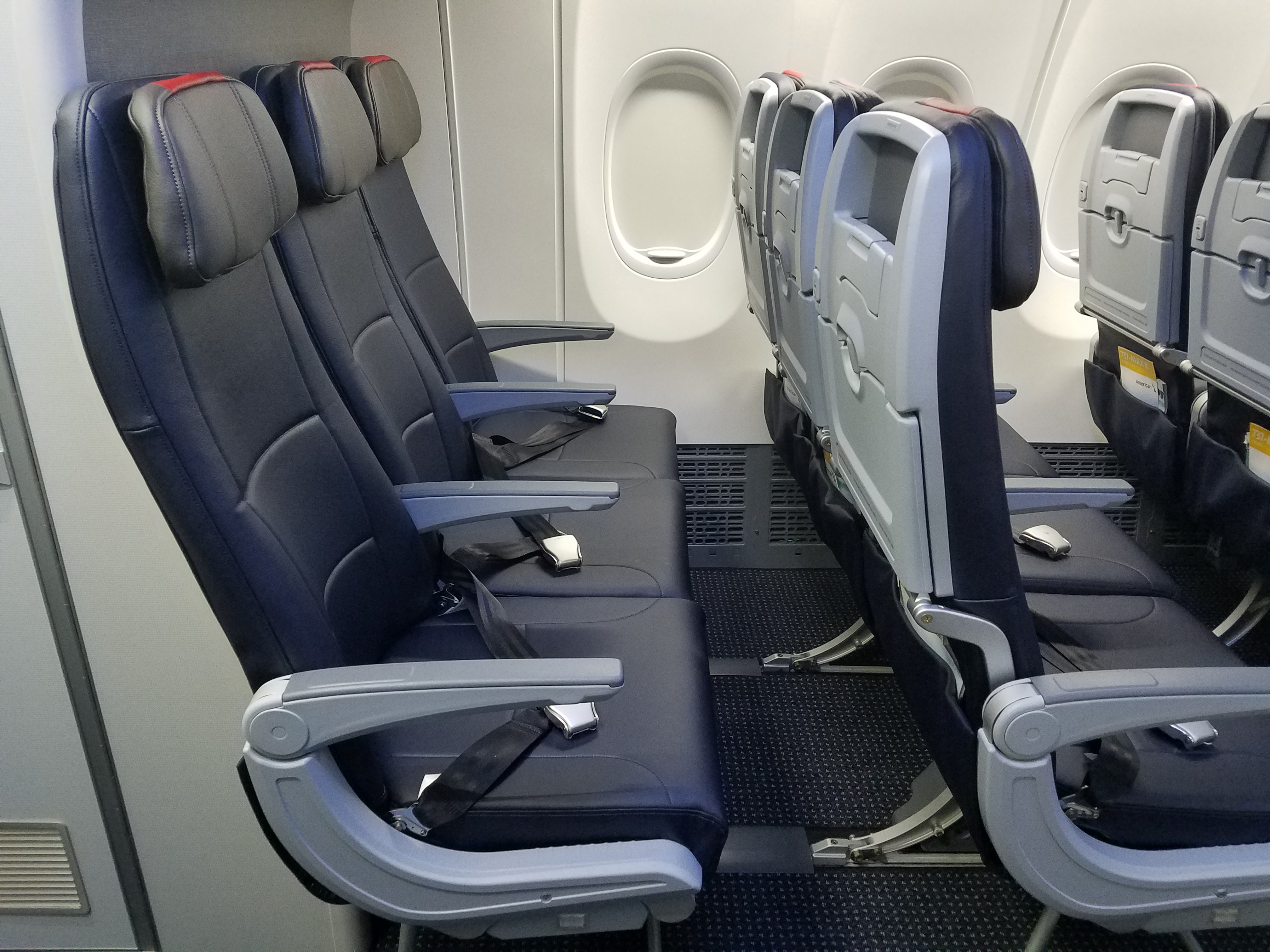
If you want to understand why American Airlines underperforms today, you need to understand Parker’s leadership. You need to understand Parker’s decision to fire Scott Kirby, who became CEO of United, in order to retain Robert Isom as the future CEO. And you need to understand his building of a board that doesn’t hold management accountable.


great assessment, Gary.
ranks right up there with the hot mic moment in which two world leaders that have no term limits discussed immortality.
The real question is when the federal government realizes that they were hoodwinked by Parker and have adopted a strategy of propping up weak airlines that has left the US worse off WRT air service than anything the free market could do.
With all but 2 US airlines generating margins below 2%, more than half of the US airline industry capacity is not financially sustainable.
It is time to rip off the bandaid and let some companies fail.
Excellent piece, missing only that he is also a contemptible individual with 2 DUIs etc. As a 5M mile lifetime AA flyer I have a special hatred for Parker and a deep respect for Scott Kirby.
Waiting for Parker to go on Maury and admit Ed Bastian is his daddy…
The ONLY things that were good about America West before multiple-DUI Dougie took over were the paint scheme and the employees. It was all downhill from there with his path of destruction…and now he’s trying to lead Qantas down that same path!
Captain Freedom,
DUI Dougie would have to take a number in line behind the poster directly above yours 😉
I know a guy who used to work directly for Parker earlier in his career, when he was just managing a handful of employees. The stories he told me often made me wonder how Parker rose so high. Based on what I’ve read in the press (including here) over the years about him has done nothing to ease my wonder.
Steve,
Parker never could stand criticism or reality and you are clearly cut from the same cloth.
Parker and his boys destroyed American Airlines. They did everything in there power to erase what was once a proud aviation leader.
Don’t forget that Dougie also made a run at Delta. Gerald Grinstein beat that off, but the price was Richard Anderson as CEO and that began the downfall of Skymiles.
Egos can ruin great things
I’m still kind of shocked no shareholder has sued the board of AA for neglecting their fiduciary responsibility.
@Gary Right on point and an exclamation on how utterly useless and unaccountable the Board has been throughout.
American is in the toilet. Next door neighbor has 30 plus years working there and employee morale couldn’t go any lower even if you dug a deep grave. And that is where a once proud company and stellar airline are now near. LHR slots will be divided up and sold. South America division sold off aka Braniff & Eastern. Plenty of smaller carriers in the USA to absorb their domestic capacity. The routes over the pacific are simply a bad joke. Doug Parker was nothing but an in house 9/11. And he picked Robert Isom to succeed him and that says it all.
Anyone working there or buying the product knows that the “I” in Isom stands for IDIOT.
Doug Parker is such a fool. How did he keep failing upwards?
Tim,
DUI Dougie never let facts get in the way of his ego or making baseless claims, and you are clearly cut from the same cloth.
@Frank – totally agree
It’s such a shame seeing how far AA has fallen esp. when you consider the very positive steps the airline was taking immediately prior to the merger and the product between 2014 and 2018 (minus the catering cuts). They’ve made their domestic passenger experience as bad as US Air was (aside from deigning to give us in-seat power) and have managed to fumble the long-haul experience as well. Wish that the board would force out D0uggie’s cronies and actually set a vision but I’m not holding my breath since there haven’t been many true improvements at AA this decade
Envy and hate are such noble emotions …
The only insightful info I got from
This article is that Gary was rejected for an internship at McKinsey back in the day…
Need to understand how to run an airline and get Bob Crandall back at least as a consultant! AA has always taken good care of me as infrequent a flyer as I or my family was. So I bought a very small number of shares which I have kept and never made any negligible profit on. But I have not sold it off because I still have hope. Call me crazy. I went to a shareholder’s meeting once and got to say hi to Crandall.
I hate to say this, but I’ve found our recent American Eagle flights to be better overall than AA mainline.
When is his wedding to Sara Nelson?
Great to finally see a blogger talk about how Parker/US Airways ruined what could have been an amazing airline! After more than 20 years as an EXP, I decided to jump to Alaska even though flights from my city are few. If it weren’t for some of the strong partners airlines and OneWorld benefits I may have jumped to a different alliance altogether! It is sad AA board still hasn’t realized they need a new leadership team, one that hopefully has no ties to legacy US Air
I agree 100%. Doug Parker was a terrible CEO. Despite what he says, his interests weren’t to help employees and shareholders but to get a big paycheck and feed his ego.
@AA loyal flyer – 3, not 2, but I don’t ever make this personal – it’s always about the substance of the decisions
Hopefully the era of treating passengers like chickens on the back of a chicken hauling truck for a cheap fare are over with.
Thanks for this Gary. One of your most insightful and interesting reads!
@Robin Rosner is there a specific reason why you need to point out that you own shares in everything? It’s a little bougie and implies that your insights are somehow more valuable the everyone else’s
Well bless his heart, Doug Parker strutted around like he was some airline visionary, but sugar, his “legacy” is about as shiny as a Waffle House fork at 3 a.m. Bailouts, furloughs, broken promises — and passengers packed so tight you’d think American was runnin’ cattle drives at 30,000 feet.
But let’s not kid ourselves: Parker wasn’t the brains behind the squeeze. Delta taught that trick first. They figured out you could make more money shovin’ folks closer together, and then Parker, instead of comin’ up with a single original thought, said, “Ooooh, I’ll do that too!”
Difference is, Delta still gave you a screen to watch while your knees kissed the seat in front. Parker? He copied the squeeze, then yanked out the screens, and called it “progress.” Baby, that ain’t progress — that’s the clearance-rack version of Delta.
So no, he didn’t take it farther. He wasn’t leadin’ the parade. He was just marchin’ behind Delta, bangin’ a dented tambourine, hopin’ nobody noticed he was outta step.
Delta gave you a squeeze with a screen, Parker copied it without — and at the end of the day, both of ‘em still feel like sittin’ in a Waffle House booth that ain’t been wiped down since Tuesday.
Doug Parker is/was a financial engineer, not an airline CEO, even if, by default, he was. Hence, what do you expect? His multiple DUIs speak to character/judgement, sorry if some think that’s a low blow.
Isom has disappointed so much, I find it hard to watch, hence I have personally defected to Flying Blue.
I saw AA described on a recent YT video as a mid-tier airline, equivalent to Southworst. Probably correct.
At the end of the day though, who’s at fault? The Board of directors and Parker’s predecessor as Chairman. What we have here is one of the worst pieces of corporate governance one could possibly imagine. How there has not been a class action shareholder lawsuit is beyond me.
We’re talking about worst airline CEO, of which Parker is undoubtedly a good contender, but somehow Jeff Smeisk wasn’t added to the list?
Anyone remember flying UA under his stewardship? I do. A 1000 mile flight in an ERJ, for example (I’m embarrassed to say I did that once, but never again, for sure). Yeah, he definitely gets a top spot on that list.
Dougweiser – worst human with a smirk.
“I don’t think we’re ever going to lose money again”
-Doug Parker in 2017
Well said, Gary. Excellent article.
I would add that 3 DUIs is important as a measure of his management and leadership. I’m not attacking his humanity; rather, this is a sign of the man’s maturity, decision making, leadership, and capacity to learn / improve. As an example, someone who isn’t learning from the 3 DUIs (for heaven’s sake, with that amount of money, get a personal driver or take a car service!) is also likely to NOT build a mock up of Oasis (and pay attention to the right details!).
The constant DUI counts are really getting old. How about focusing on his pathetic job running multiple airlines?
“It is not the critic who counts: not the man who points out how the strong man stumbles or where the doer of deeds could have done better. The credit belongs to the man who is actually in the arena, whose face is marred by dust and sweat and blood, who strives valiantly, who errs and comes up short again and again, because there is no effort without error or shortcoming, but who knows the great enthusiasms, the great devotions, who spends himself in a worthy cause; who, at the best, knows, in the end, the triumph of high achievement, and who, at the worst, if he fails, at least he fails while daring greatly, so that his place shall never be with those cold and timid souls who knew neither victory nor defeat.” —Theodore Roosevelt
You’re all so smart and know it all so well. Armchair CEOs that have no idea what occurs in this industry.
yes, Ghost, you post that all the time (is it a hot key on your computer?)
and it doesn’t change that AA has been horribly mismanaged for decades. UA was as well while DL set the standard for what a network airline could do.
Many people think Scott Kirby was caged and unable to do what he wanted to do at AA but he was part of all that is wrong now w/ AA. He learned that it didn’t work and went to UA and has managed to help turn UA around even though UA still pays its employees far less than market (also an HP/US/AA trick).
AA IS in the arena and it hasn’t done a very good job, son.
Accept the criticism. It is valid.
@Anonymous- all we have to do is look at the results, Parker levered up the balance sheet, degraded the product, and scaled back the route network. He walked away from competition in important markets that drive the most profit part of the business (credit card cobrand) and reduced premium seating into a market where demand is at the front end of the plane. And he retired aircraft that kept the airline from taking advantage of the boom in Europe travel. American is a financial laggard in the industry because of his leadership, and he cost the carrier $30 billion in market cap – a worse performance (and the metric by which a CEO is traditionally judged) than any othe airline CEO in history.
@DesertGhost – credit for success and failure goes to “the man who is actually in the arena” and so we turn to the record and this was a worse record than any other airline CEO is recorded history, as I have outlined.
I’m fairly certain DUI Doug will be the next Secretary of Transportation. He’s perfect for Trumps cabinet!
@Brian
I’d say Ed Bastian or Scott Kirby long before Doug Parker. Ed and Scott couldn’t bend the knee fast enough to Trump to curry favor.
@Gary
I do think you hit the nail on the head. Doug was a horrible CEO but the real blame should be on the Board of Directors. Doug acted in an insanely financially advantageous way… to himself. He acted very rationally, as you’d expect, given incentives and his own strategic ability (lacking, at best). He made hundreds of millions of dollars (as you mention) enriching himself at the expense of shareholders. The job of the Board is to create incentives for the shareholders, not the CEO and they clearly failed at their entire purpose.
Doug was a bad CEO but the real blame is on the Board that he somehow managed to coddle for decades while enriching himself in a way few have done except his own people at AA past or present.
I think Don Burr’s screwing of all of the PeoplExpress employees in February ’87 was the worst CEO legacy.
That POS went behind everyone’s back and sold to Continental.
IMHO he’s the biggest airline CEO scumbag.
I agree with most of your readers. Parker was the worst airline CEO. His record with 3 DUI’s not withstanding. If this would have been a crew member or employee unable to cover their flight or shift because they are jail they would have been fired. Yet he was able to ruin a once a great airline.
I swear most times it seems American is trying to be bad. I like the duct tape photo. I’ve had multiple flight delays just for Armrest issues. Give me a break.
Air Show covers “what’s wrong w/ AA part 1 (of 999). Nothing earth-shattering but some good data.
worth a listen
So how did US airways overpay for American Airlines? How much did they pay? Are you sure you got your facts straight? It was a merger where us air stockholders got 1 stock for their 1 usair stock. They received 28 percent of the 11 billion stock and the American airlines holders received 72 percent
I remember in 2012 when the pilots and flight attendants unions at AA begged Parker to take AA over and signed LOMs to be on board. The mechanics and baggage handlers unions balked and said bold on but we were out numbered. The toxic relationship AA bad with FAs and Pilots skewed their judgement and they got a CEO worse than what we ever had at AA. I blame them. Parker should never have been CEO.
Parker is the worst CEO I have seen in nearly 40 years in the business. He was/is an embarrassing public speaker. How he ever made it to be CEO at the world’s largest airline is beyond me. He has to be the most woke airline leader in a generation. Another self loathing white guy who’s not sure of what he believes in or why he is hear on planet earth. I’m glad he is gone from AA. Isom is like a baby calf looking at a brand new gate. He’s not sure what to do. God help us. We need a miracle.
Gary you do realize in your extensive research that both AA and US used Sabre for passenger reservations, flight dispatch, and almost all other functions? Only the maintenance systems were on different platforms.
Do some research next time and not make up alternative facts.
@Michael – US Airways was on Sabre PSS. America West was on Shares. American SabreSonic. It doesn’t matter that Sabre owned Shares, the platforms were still different, with different capabilities, and the transition after America West took over US Airways was a disaster. American’s platform was far superior. They weren’t ‘the same’ as you seem to suggest, just because Sabre Holdings had both.
I think you nailed it. It’s not American Airlines, it’s America West. I wonder what American Airlines would be like today if it had been able to avoid being acquired by America West/US Airways. Mind you, they did do one good thing – they restored special meals in first class which had been cut 10 years earlier in 2005. For me it was too late, I had already switched to Delta which never stopped doing these meals, after I found this out during a status match that I never intended to complete until I learned about the meals.
A drunk frat boy that never grew up. Destroyed a legacy carrier and got extremely rich by being a D’bag.